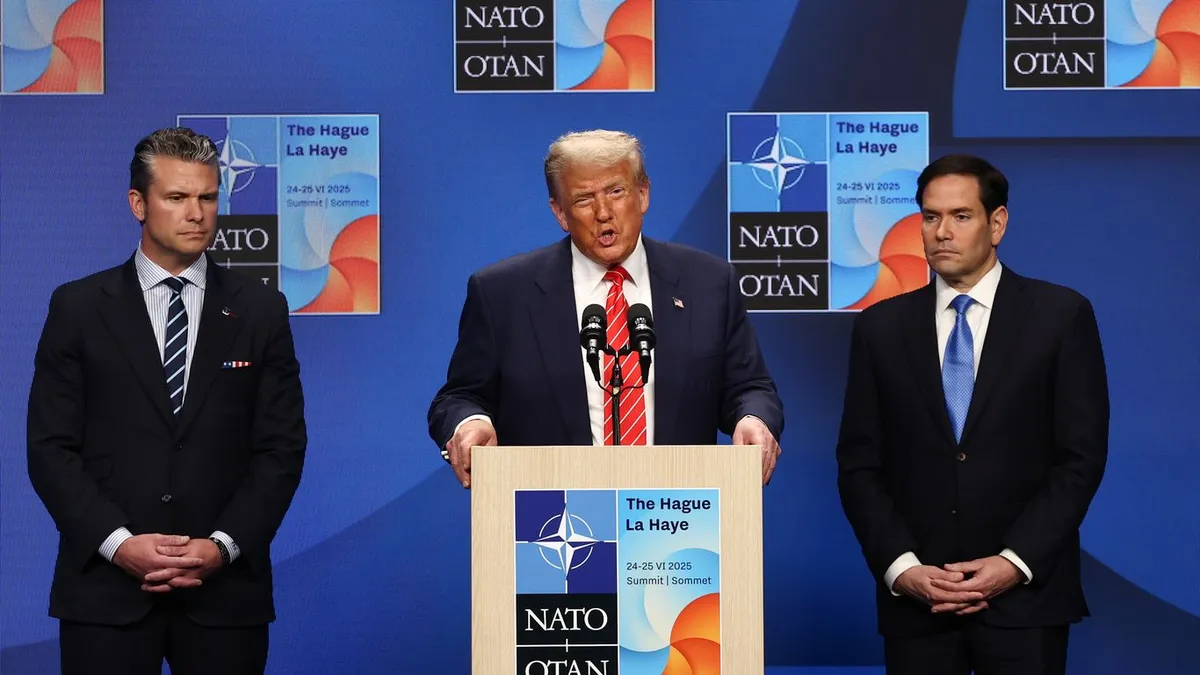
In a significant development, President Trump announced during a press conference concluding the NATO summit that the U.S. and Iran are set to meet next week to discuss a potential nuclear deal. This announcement comes on the heels of escalating tensions following a military strike ordered by Trump on Iran's nuclear facilities just a week prior.
Despite Trump's declaration, Iran has not publicly confirmed any plans for discussions with U.S. officials. This lack of confirmation raises questions about the viability of the upcoming talks. The situation is further complicated as Iran retaliated for the recent U.S. actions by launching missiles at a military base in Qatar, although it later indicated a willingness to de-escalate tensions and agreed to a ceasefire with Israel.
Trump's appearance at NATO served as a victory lap for the successful B-2 bombing operation, which he claims dealt a significant blow to Iran's nuclear capabilities. He urged Iran to return to the negotiation table, emphasizing the importance of discussions centered around preventing Iran from obtaining a nuclear weapon.
The last interaction between White House envoy Steve Witkoff and Iranian Foreign Minister Abbas Araghchi was over a month ago. U.S. and Israeli officials revealed that a meeting was scheduled for June 15 in Oman, where Iran was expected to respond officially to a new U.S. proposal for a nuclear deal. However, intelligence reports indicated that Iran would not attend, prompting the U.S. and Israel to take immediate military action.
Following the intelligence assessment, Israel launched a military campaign against Iran, which lasted for 12 days. During this period, Israel gained control of Iranian airspace, targeted nuclear and military installations, and executed assassinations of key military leaders and nuclear scientists. Subsequently, the U.S. conducted a significant strike that Trump claimed effectively obliterated Iran's nuclear program.
During the press conference, Trump expressed a somewhat ambivalent stance regarding the potential signing of a document with Iran. He stated that while there may be an agreement, he does not feel strongly about it as he believes Iran's nuclear capabilities have been destroyed. Trump's primary concern in the negotiations is to secure a commitment from Iran that they will not pursue nuclear weapons.
He criticized media reports suggesting that recent U.S. intelligence assessments revealed that Iran's nuclear program had only been set back by a few months instead of years, highlighting the ongoing debate regarding the effectiveness of military actions versus diplomatic negotiations.
Looking ahead, Secretary of State Marco Rubio, who also serves as Trump's national security adviser, emphasized the need for Iran to engage in direct negotiations with the United States, rather than through intermediaries. During the NATO press conference, Trump asked Rubio about the possibility of drafting an agreement for Iran to sign, expressing confidence that a deal could be reached. However, he indicated that he does not believe it is necessary, as he suspects Iran will focus on post-war recovery rather than re-engaging in nuclear development.
The upcoming discussions between the U.S. and Iran could play a pivotal role in shaping the future of international relations and nuclear non-proliferation efforts in the region. As tensions remain high, the world will be closely watching how these talks unfold.